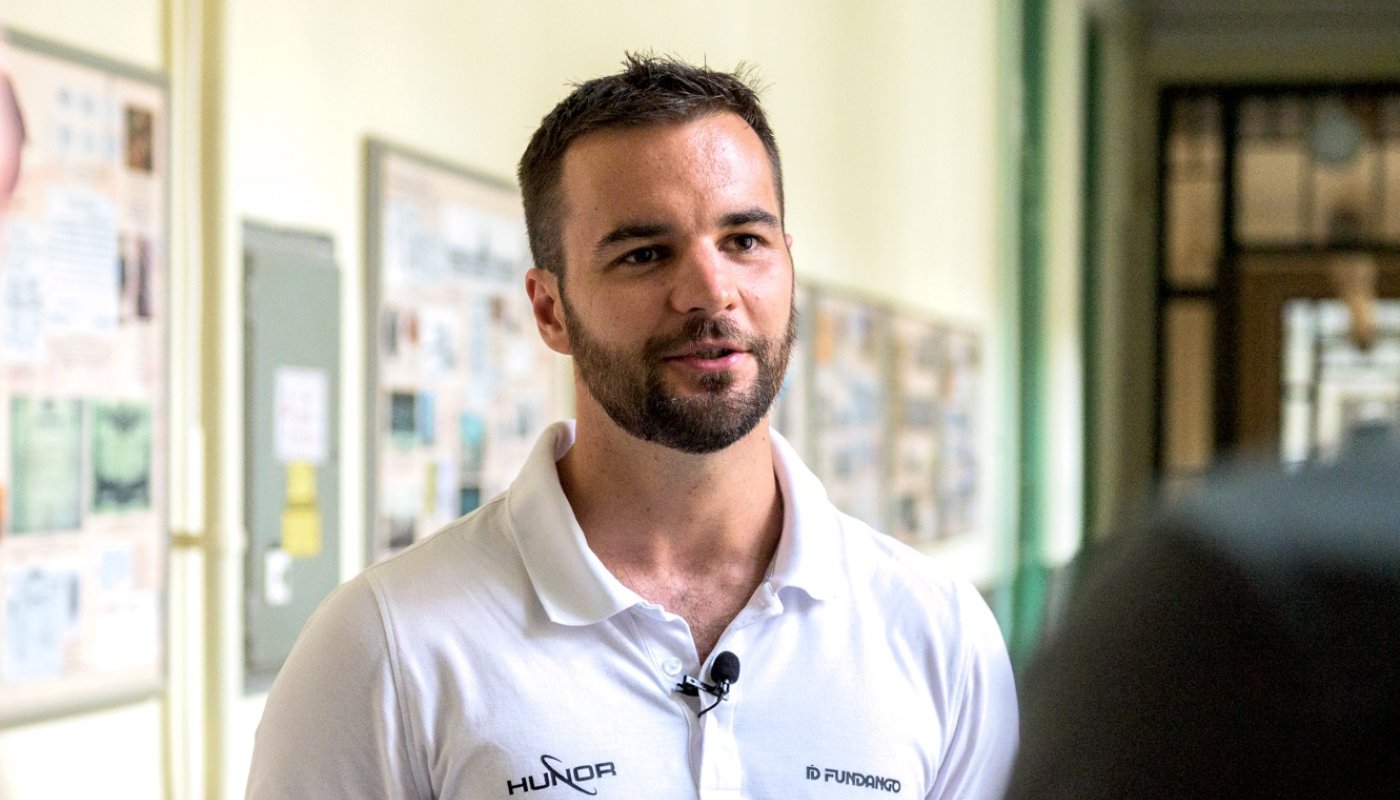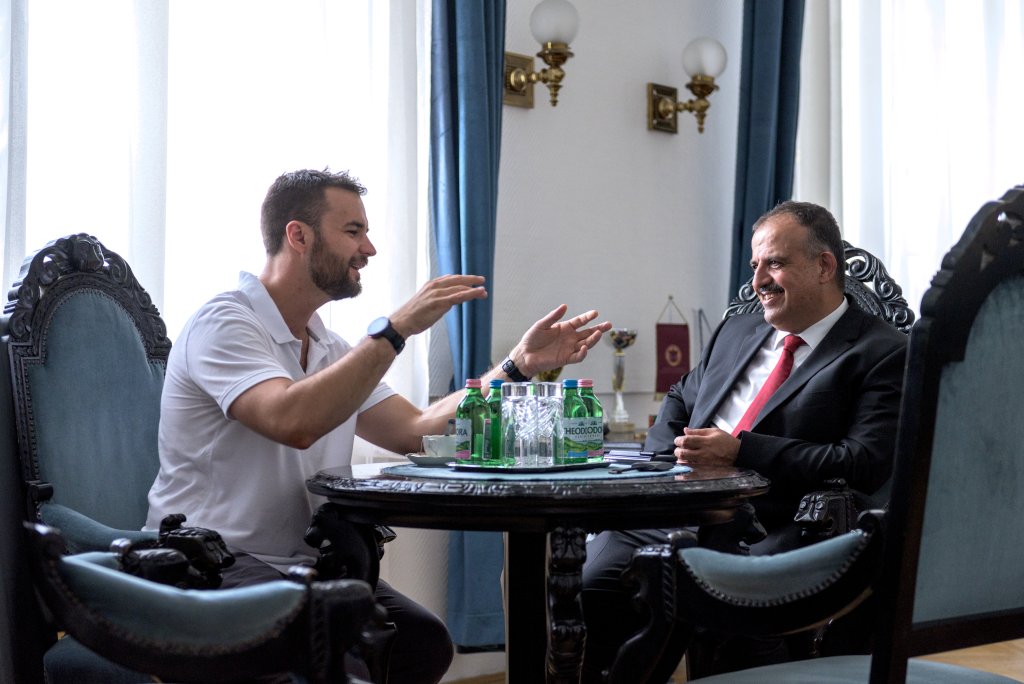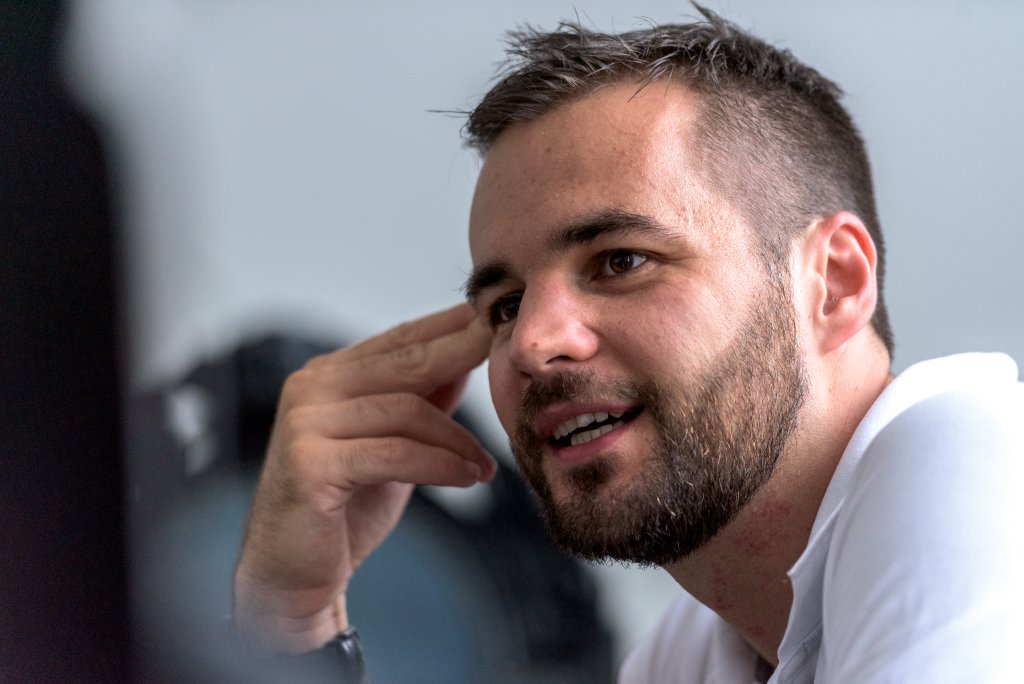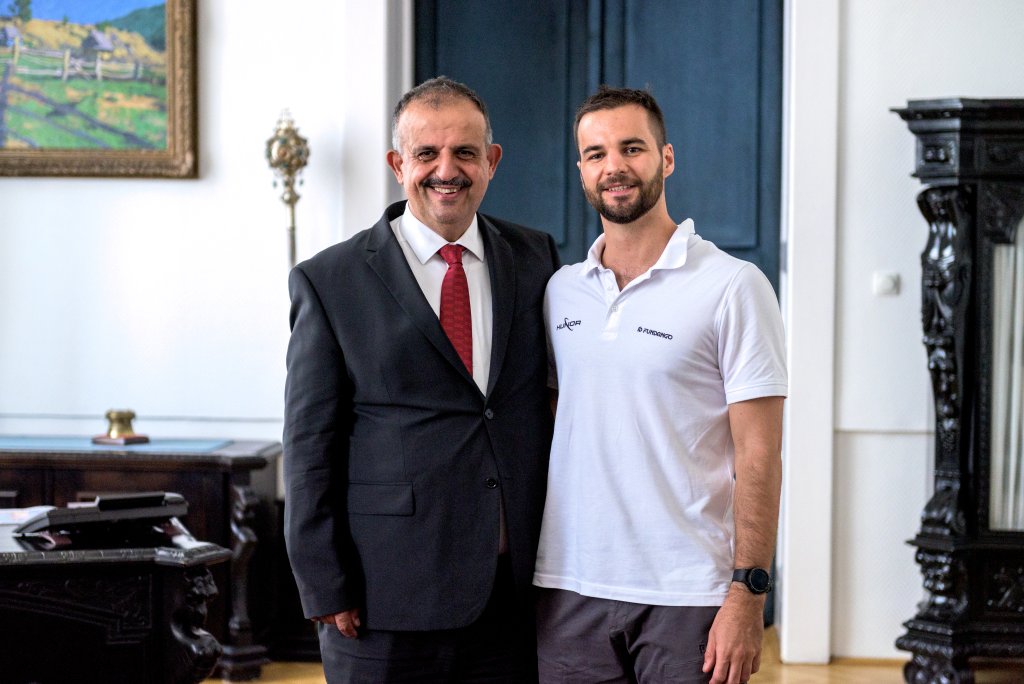News feed
Tibor Kapu: "BME Played a Key Role in My Success in the Selection"
2024. 07. 15.
Hassan Charaf, Rector of BME, recently invited Tibor Kapu, who was selected as an astronaut candidate in the HUNOR programme, for a discussion. After their meeting, bme.hu had the opportunity to ask the astronaut hopeful, who graduated from BME, a few questions.
What did you discuss with the Rector?
We had much to talk about, as both our lives have seen significant changes recently: I was selected as an astronaut candidate, and he was appointed as Rector. Today, he received his official appointment at the Sándor Palace. Additionally, as I do with everyone whose advice I value, I asked him what suggestions he had for me for the upcoming period. He told me many things, but above all, he emphasized the importance of taking care of myself. I also made a promise in front of witnesses to return and report back after the mission.

What experiences have you gained during your preparation since your selection?
I had a very intense period with Gyula Cserényi, who was appointed as a reserve. Since the selection, we have given numerous interviews to satisfy the enormous media interest, striving to spread the word about the programme as widely as possible. Additionally, we have continued our training and have started to work more seriously on the experiments that are now at the stage where they can be practised.
How many details do you have about the specific tasks you will perform on the International Space Station?
Nearly all the projects come from Hungarian research institutes and universities. We are immensely proud to have received proposals from practically all areas of science and from all parts of the country, ranging from 3D printing to VR applications and biomedical experiments. It will be a great responsibility to carry them out, as Hungarian scientists have been preparing them for years, and we may only get the chance to try some of them once.
How much of your time does the preparation take up?
Since April last year, this has been my job, although it doesn't necessarily fill an eight-hour day. We study, train, and travel a lot, primarily within the country for now. It's a significant team effort involving not only our colleagues but also our families, who may have to make certain sacrifices. Soon, we will move to the US to begin specific training, which will directly prepare us for the mission. We also need to learn how to operate certain modules and equipment on the space station and the space capsule, as well as master emergency procedures.
You have been to Houston before, correct?
Yes, I spent a week there in April. It was very instructive; we visited NASA and Axiom Space, the company organizing the mission. We also spent part of the time in Philadelphia, where they have a centrifuge to simulate the effects of acceleration on the human body during space travel. We had to simulate all sorts of scenarios to ensure we could handle extreme conditions if necessary.

I read that the mission commander will be the seasoned astronaut and biochemist Peggy Whitson. Have you met her or your other two future teammates?
I have met Peggy Whitson, although I should note that I haven't received official confirmation that she will be our commander. I would be pleased if she were, as she is a living legend. You would be hard-pressed to list all the records she holds in the history of human spaceflight. She was present during our selection process, and I had the chance to talk to her. I also asked her for advice. She shared that she was an intern at NASA when the opportunity to become an astronaut arose, and she gave up a doctoral programme to try for it. All her colleagues told her it was the worst decision she could make, but she proved them wrong.
The NASA website states that the mission will launch "no earlier than October 2024," but the previous mission is not scheduled to conclude until next year. Do you have any more precise information about the launch date?
As of now, we don't have any definite information, but it will likely be early next year.
BME has been offering aerospace engineer training for two years now. If it had been available when you were choosing your master training programme, would you have considered it?
I would have certainly applied!
Can such an academic programme contribute to producing more Hungarian astronauts?
As my example shows, it's possible to reach this point without a degree in aerospace engineering. The HUNOR programme aims to give a significant boost to the Hungarian space industry. Our experiments can leave a lasting legacy for both the companies and research groups involved. If this happens, there will be a great demand for aerospace engineers in this industry, along with legal, economic, and HR professionals. So, even if not all aerospace engineers become astronauts, they will find opportunities in space industry companies.
In aerospace engineering or other training programmes, why is BME a good choice? How do you see this as a former student?
I had a great time at BME, both professionally and socially. My father, who is also a mechanical engineer and much more brilliant than me at that, always said that he didn't leave university with just lexical knowledge but with an engineering mindset and problem-solving skills that he has applied in practically every area of life. I see this in him and feel it in myself as well; it was definitely a part of my success in the astronaut selection.

pg
